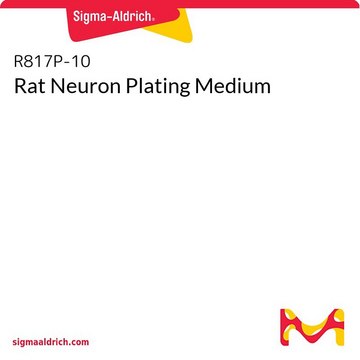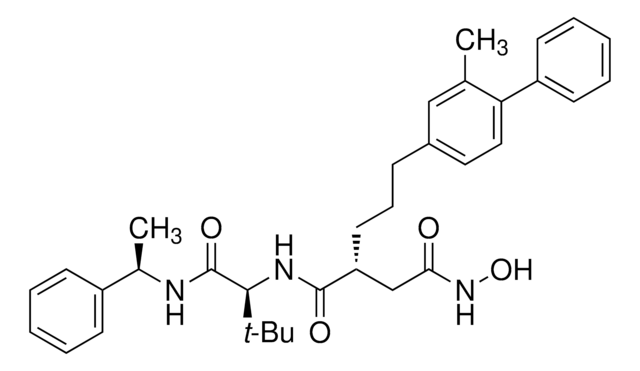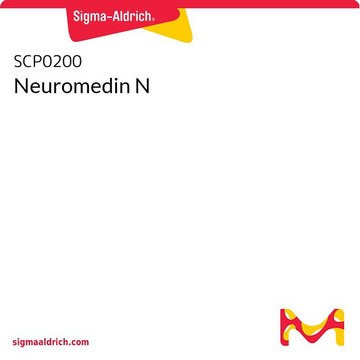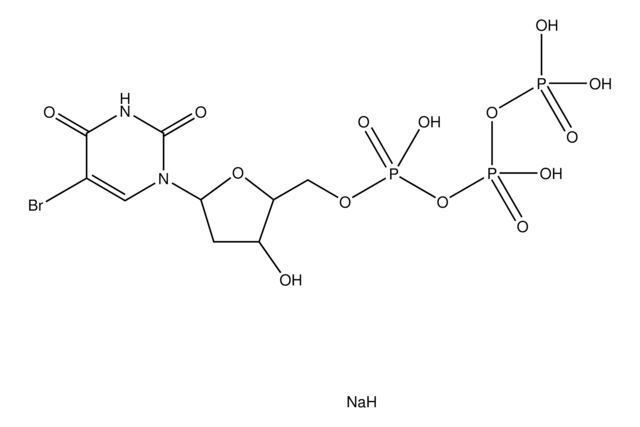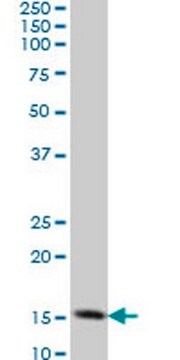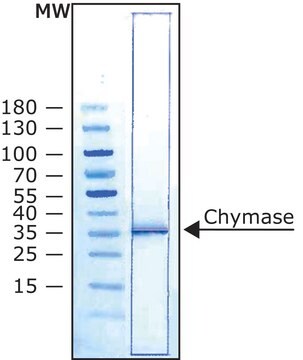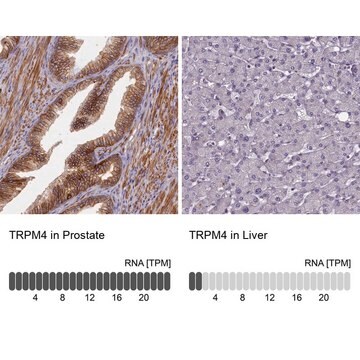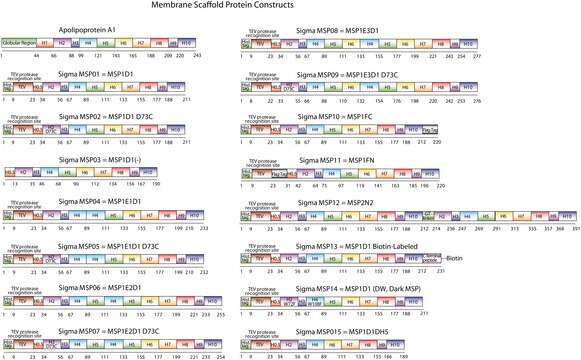P9114
6-(2-Propargyloxyphenyl)hexanoic acid
≥98%, solid
Synonym(s):
PPOH
Sign Into View Organizational & Contract Pricing
All Photos(1)
About This Item
Empirical Formula (Hill Notation):
C15H18O3
CAS Number:
Molecular Weight:
246.30
MDL number:
UNSPSC Code:
12352106
PubChem Substance ID:
NACRES:
NA.77
Recommended Products
biological source
synthetic
Quality Level
Assay
≥98%
form
solid
shipped in
wet ice
storage temp.
−20°C
SMILES string
OC(=O)CCCCCc1ccccc1OCC#C
InChI
1S/C15H18O3/c1-2-12-18-14-10-7-6-9-13(14)8-4-3-5-11-15(16)17/h1,6-7,9-10H,3-5,8,11-12H2,(H,16,17)
InChI key
CUNYTKVXYZYERK-UHFFFAOYSA-N
General description
PPOH is a synthetic, acetylenic fatty acid and a selective inhibitor of arachidonate epoxygenation reactions catalyzed by certain microsomal cytochrome P450 (CYP) enzymes. PPOH inhibits the reaction of epoxide formation (IC50 of 90 μM) at arachidonate positions 11 and 12 by CYP4A2 and CYP4A3 isozymes. PPOH does not inhibit the ω-hydroxylation reaction of CYP4A1 leading to the formation of 20-HETE.1 Arachidonate metabolism studies using inhibitors such as PPOH may be useful in elucidating the role of metabolites in regulating renal function and hypertension.
Biochem/physiol Actions
Selective inhibitor of epoxygenation catalyzed by CYP450 isozymes.
Preparation Note
PPOH is soluble in the following organic solvents:ethanol, DMSO, and N,N-dimethylformamide (DMF). It is at least soluble to 50 mg/ml in each solvent. The organic solvents should first be purged with an inert gas such as argon before preparation of the stock solutions to minimize any possible oxidation of the unsaturated PPOH. Stock solutions will be stable for at least one year as aliquots stored at –20 °C and under a layer of argon or dry nitrogen. The stock solution should be further diluted into aqueous buffers or isotonic saline (ensure that the residual amount of organic solvent is not causing physiological effects at low concentrations of the organic solvent) for biological experiments. Alternatively, if an organic solvent-free aqueous solution is desired, directly dissolve the crystalline PPOH in aqueous buffers. The solubility of PPOH is at least 0.5 mg/ml in PBS buffer, pH 7.2. Do not store aqueous solutions for more than one day.
Storage Class Code
11 - Combustible Solids
WGK
WGK 3
Flash Point(F)
Not applicable
Flash Point(C)
Not applicable
Personal Protective Equipment
dust mask type N95 (US), Eyeshields, Gloves
Choose from one of the most recent versions:
Already Own This Product?
Find documentation for the products that you have recently purchased in the Document Library.
Yijun Huang et al.
Prostaglandins & other lipid mediators, 131, 17-24 (2017-05-06)
Hyperdynamic circulation contributes to the progress of portal hypertension in liver cirrhosis. We investigated the effects of soluble epoxide hydrolase (sEH) inhibition on portal pressure and the myogenic response of mesenteric arteries isolated from cirrhotic rats using the sEH inhibitor
Wen-ting You et al.
Acta pharmacologica Sinica, 37(3), 368-381 (2016-02-04)
CYP2J3 in myocardium metabolizes arachidonic acid to 4 regioisomeric epoxyeicosatrienoic acids (EETs), which have diverse biological activities in rat heart. In this study we examined whether CYP2J3 was involved in cardioprotective effects of ophiopogonin D (OPD), a steroidal glycoside isolated
Jie Zhang et al.
Biomedicine & pharmacotherapy = Biomedecine & pharmacotherapie, 109, 1498-1505 (2018-12-16)
Cardiac hypertrophy is a key pathological process in the context of diabetic cardiomyopathy. Naringenin exhibits multiple pharmacological activities, but the effect of naringenin on cardiomyocyte hypertrophy under diabetic conditions is still far from clear. Cardiomyocyte hypertrophy was induced by high
V Lamounier-Zepter et al.
International journal of obesity (2005), 39(5), 755-761 (2014-11-06)
Adipocyte fatty acid-binding protein (FABP4) is a member of a highly conserved family of cytosolic proteins that bind with high affinity to hydrophobic ligands, such as saturated and unsaturated long-chain fatty acids and eicosanoids. Recent evidence has supported a novel
Our team of scientists has experience in all areas of research including Life Science, Material Science, Chemical Synthesis, Chromatography, Analytical and many others.
Contact Technical Service